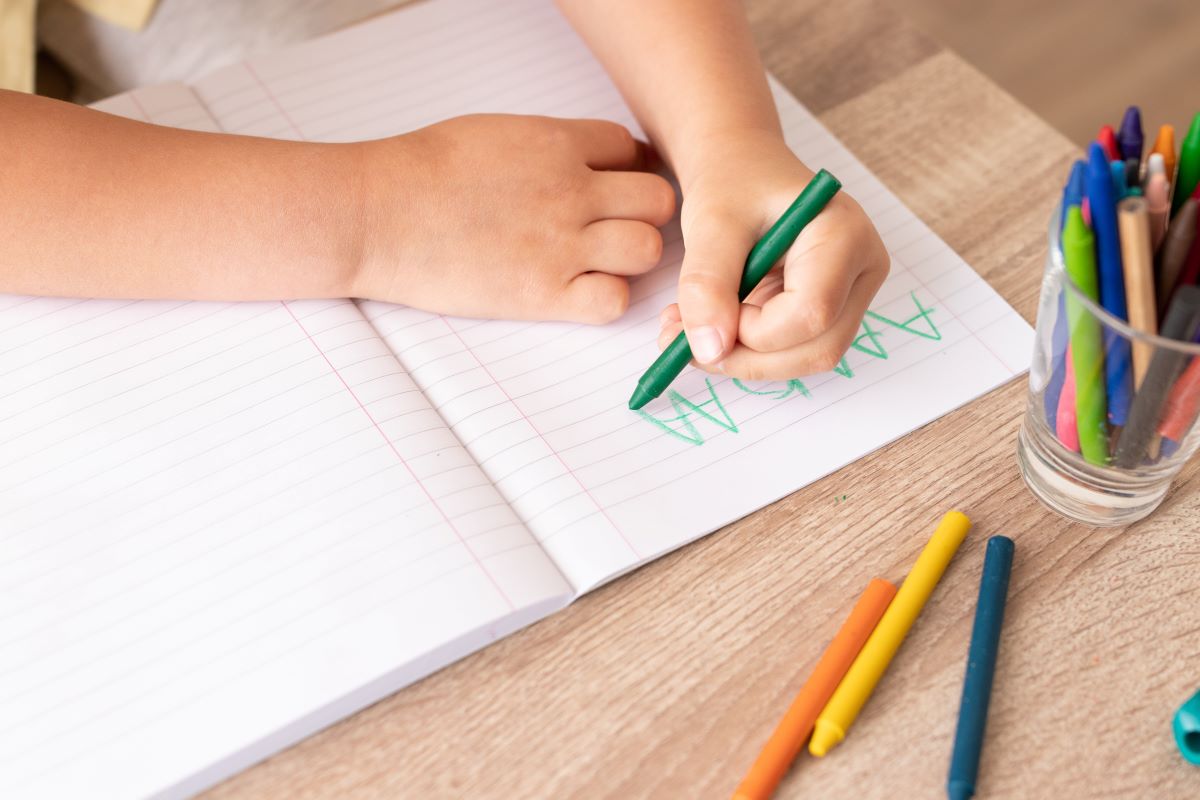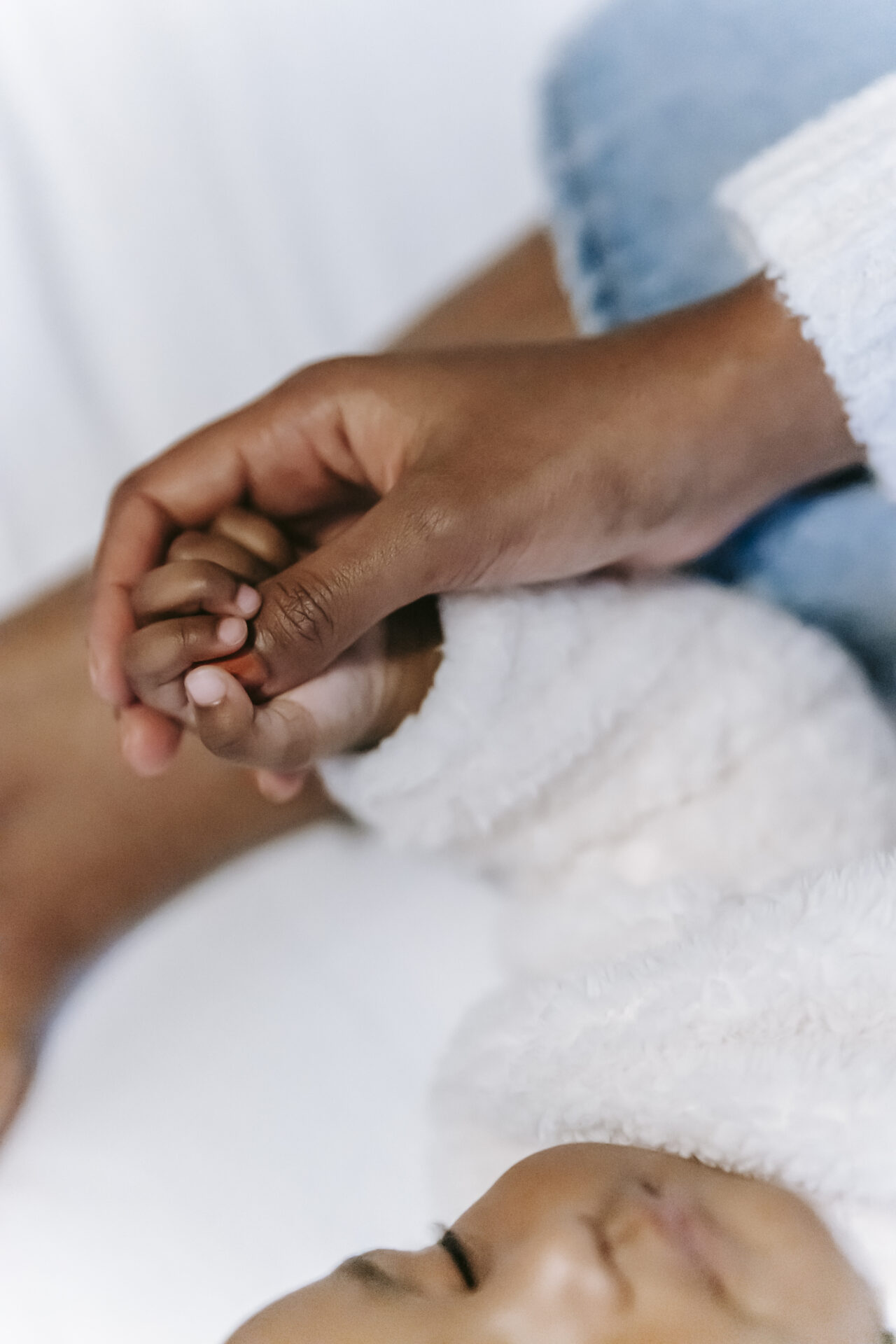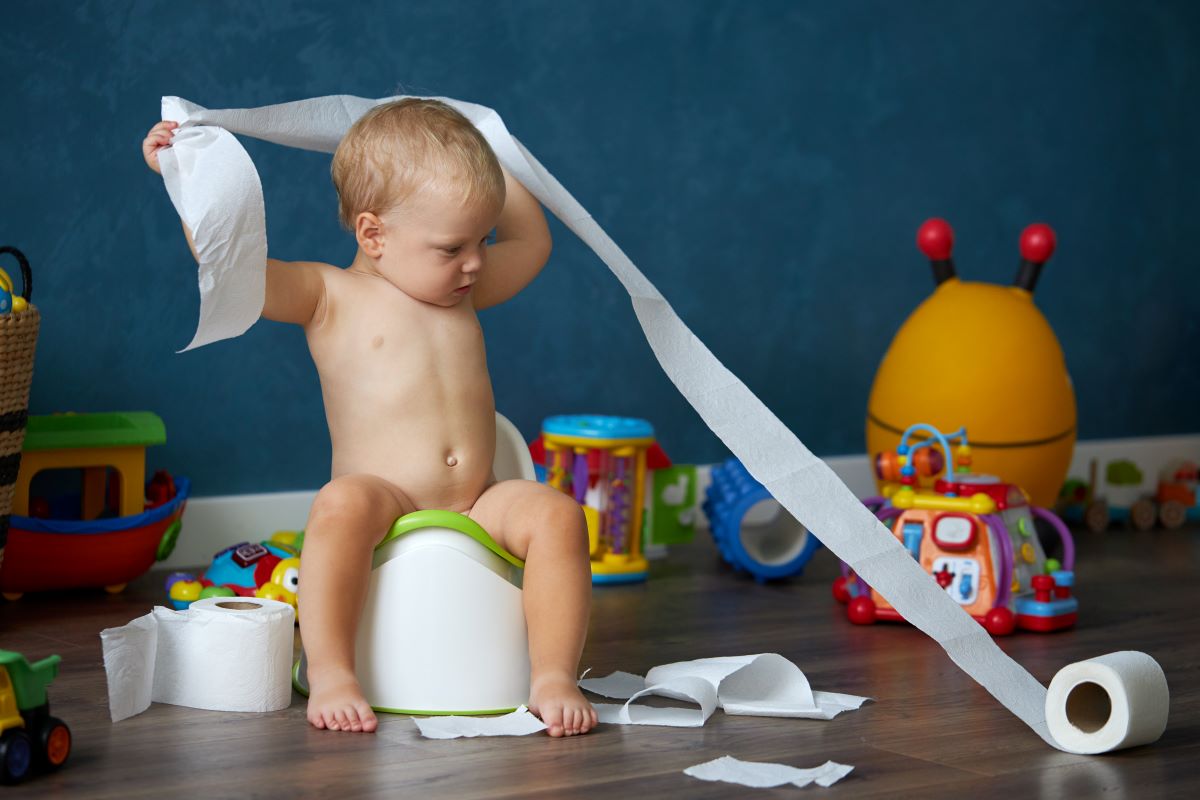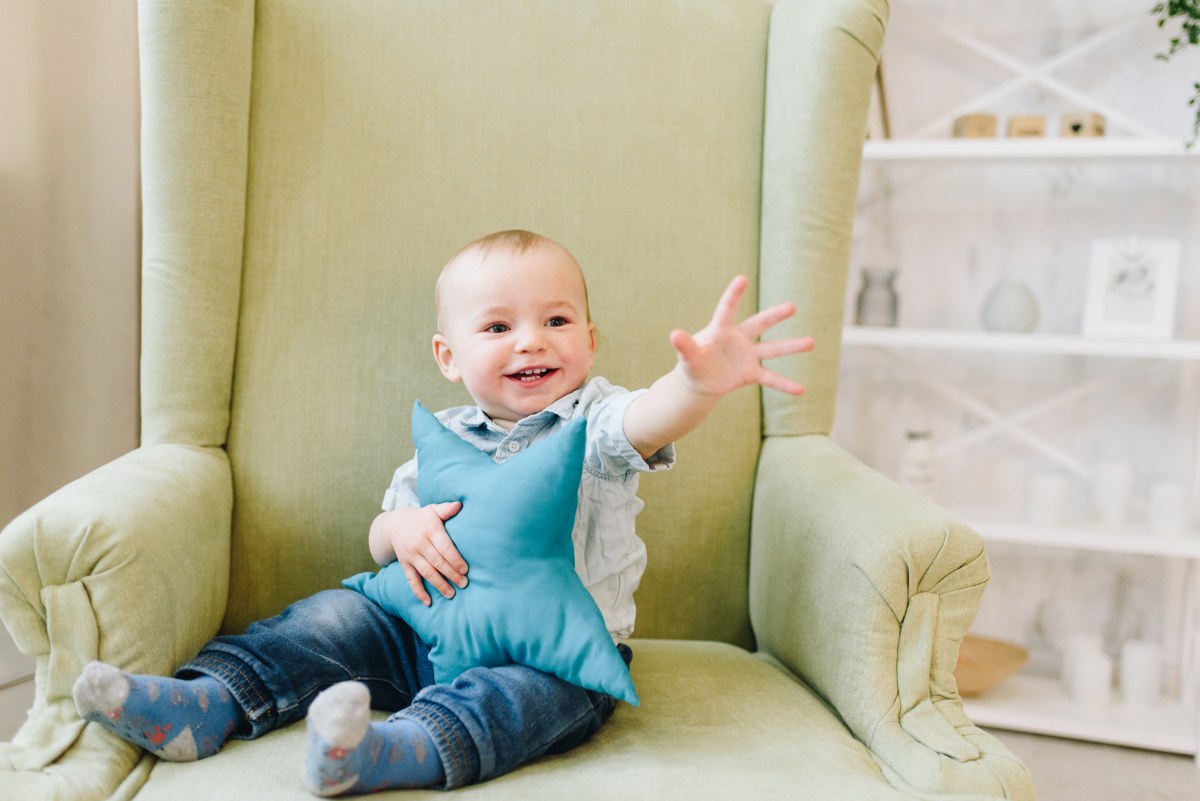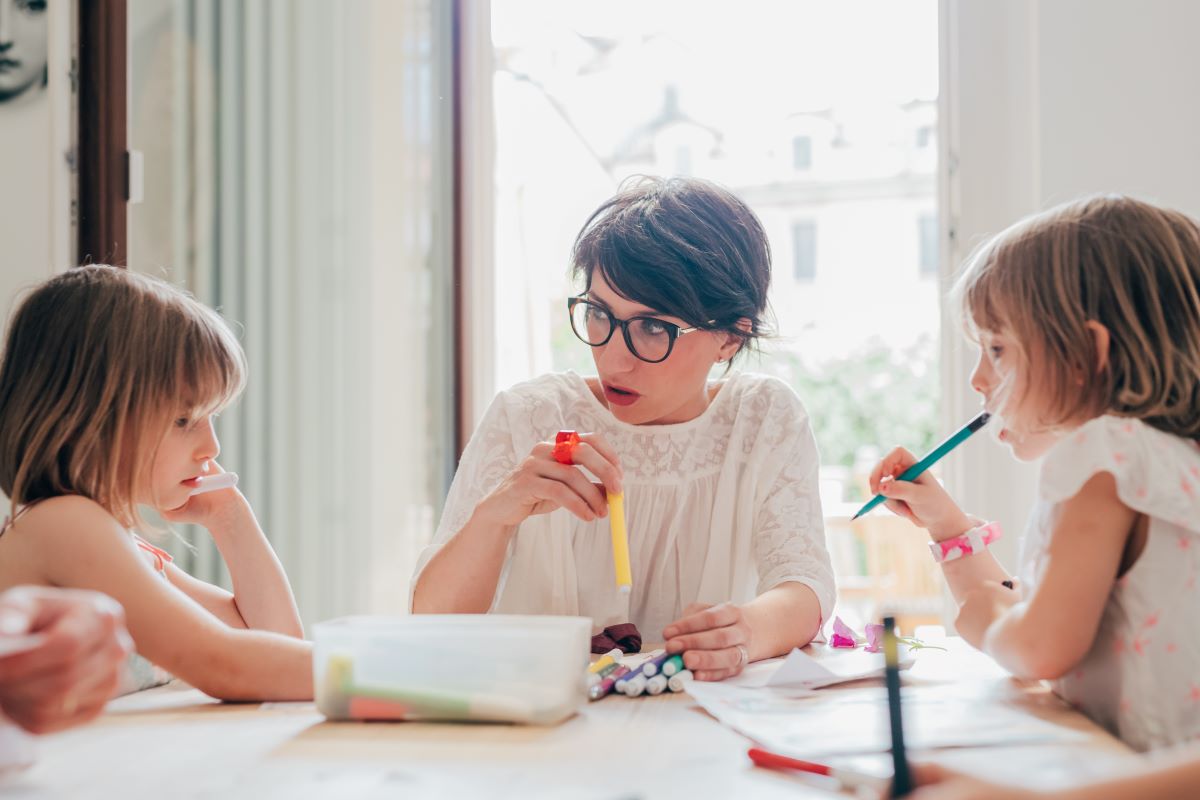Half time! With the 21st week you have the first half of your pregnancy behind you. Now you start into the 6th month of pregnancy and the second half of your pregnancy. We show you what to expect in the 21st week of pregnancy.
Table of contents
Important facts about the 21st week: What you should know
Your baby is now about 27 cm tall, as big as a bunch of asparagus, and weighs 350 g.
The brain continues to develop, the first wrinkles appear and sensory perceptions continue to develop.
In the 21st week, your baby has fixed sleeping and waking times, recognizes your voice and the voice of other familiar people. In addition, the baby now also tastes your food.
This happens with you
Shift of the body’s center of gravity
Because your baby and therefore your uterus continue to grow, the center of gravity of your body shifts further and further forward. The pregnancy hormones also loosen your ligaments and joints. The joints in your feet and arms are particularly affected.
Therefore, from the 21st week of pregnancy you should wear comfortable shoes at best and avoid high heels. In uncomfortable shoes you can quickly lose your footing, stumble and injure yourself. In addition, comfortable, flat shoes prevent back pain.
Weight gain
On average, women gain between 4.5 and 7 kg by the 21st week of pregnancy. By eating healthy and exercising , you can avoid uncontrolled weight gain during pregnancy.
If your scales still show a few more kilos than you would like, don’t worry about it. Most of the time, many kilos disappear all by themselves after the birth. Then the body burns a lot of nutrients and energy and gets rid of the fat deposits accumulated during pregnancy while breastfeeding.
Childbirth movements
Most expectant mothers now feel the movements of their baby very clearly. This is not the case with you? As long as your doctor confirms that your baby is otherwise fit and healthy, there’s nothing wrong with that. Maybe it’s just a little more shy and less active in the womb.
Also interesting:
Tip for expectant fathers
The misconception that sex during pregnancy is bad for the child and could induce birth is widespread and persistent. However, this myth is not true – sex during pregnancy is fine until birth and not dangerous for the child, which is protected by the amniotic sac and uterus.
Pregnancy symptoms in the 21st week and what you can do about it
Back pain
In the 21st week of pregnancy your belly has grown a lot, after all your baby is already 27 cm tall. The uterus continues to grow upwards.
The additional weight of the fetus, uterus, amniotic fluid and placenta has an effect on your back and pelvis from the 21st week. This is why you will experience increased discomfort in your back.
Of course, you are willing to put up with back pain for the development of your baby, but this is not the best part of your pregnancy.
You can best relieve your back if you do not stand for too long and do not lift anything heavy. Anything heavier than 5 kg should be left to someone else.
Also, when lifting, make sure you squat down and stand up with your back straight. This way you can help your back and prevent pain.
Discharge from the vagina
The body is constantly trying to keep the birth canal clean and free of viruses and harmful bacteria. To do this, it regularly flushes it, which can lead to increased discharge from the vagina.
The uterus is a shield for the baby for pathogens from the vaginal area, but the vagina itself is very sensitive to pathogens during pregnancy. Therefore, if possible, avoid unhygienic places such as public toilets to minimize the risk of getting sick.
Cramps
Cramps can occur frequently during this phase, especially in the calf and thigh area. There are two reasons for this:
First, your body is not used to the increased effort, which is why you overload your muscles with the extra weight, which leads to unsightly cramps.
Secondly, a magnesium deficiency can cause your legs to cramp. The body is particularly susceptible to cramps in resting phases, which is why it can happen that you are awakened by cramps at night.
Flatulence
In addition to an increased urge to urinate, expectant mothers are also frequently plagued by flatulence or constipation. The reason for this is the increased estrogen level and the increased production of progesterone, which causes a pregnant woman’s hormones to fluctuate.
Soothing teas often work wonders against stomach discomfort and are also helpful to replenish your electrolyte balance
What can be seen on the ultrasound during the 21st week of pregnancy?
In the 21st week, your baby’s brain continues to develop. On the ultrasound, these developments are shown by the recognizable brain furrows that appear during this week.
Slowly but surely, your baby will become more and more like a tiny human being and more and more like a newborn.
What is the risk of miscarriage in the 21st week?
The risk of miscarriage is still very low at 0.5%. Already since the 14th week of gestation the risk has decreased to this minimum value and remains at this value until the 24th week of gestation.
So far, there is no reason for you to worry. If you are doing well, then your baby is usually doing well too.
What happens to the baby
Since the 20th week of gestation, your baby is no longer measured from the crown to the rump, but from the crown to the heel. This means that the baby is around 27 cm long and weighs about 350 g.
There is still enough room in your belly so that he can continue to romp around and exercise his muscles. Through training, the movements of your offspring will become more and more purposeful and coordinated.
The sleep rhythm of your little treasure is now pronounced. You influence it with your behavior. Noise, bright light and your food intake have an effect on his sleep rhythm.
If it is loud and bright around you and you eat irregularly, your baby will also sleep irregularly. If, on the other hand, you have a regular daily routine with regular meals and a proper sleep rhythm, your baby will also have a regular sleep.
In addition, just like you, your baby already has a favorite sleeping position in the 21st week. He can fold his little hands under his chin, lower his head to his chest or lay it back.
Your baby’s facial expressions and gestures are also becoming more and more pronounced. By now you can see not only the eyebrows. You can clearly see the little eyelashes. Even the nails have already grown. But they still have to harden.
This is how your baby develops in the 21st week of gestation
The focus of development in the 21st week is on the further development of the brain and sensory perceptions.
By the 21st week, your baby can already smell, taste and hear. It can now distinguish the amniotic fluid it has drunk and its aromas in taste and therefore also tastes what you have previously eaten.
The baby stores the aromas in its memory and recognizes them after birth when drinking breast milk.
Your baby clearly perceives your voice. Other voices, such as those of your partner and other familiar people, are also familiar to your baby. It can distinguish and recognize these voices.
Familiar voices have a calming effect on your baby. Talk to him a lot and encourage your partner to do the same. Some fathers have experienced that the baby recognizes their voice after birth and immediately feels more comfortable on their arm.
In this way, you create a special relationship with your baby by talking even during pregnancy.
In addition, you can already get your baby used to a certain melody. After birth, it will recognize this music and immediately feel safer and more secure.
This is important now
Concretization phase
You are in the concretization phase of pregnancy from the 21st week of gestation. The weeks between the 21st week of gestation and the 40th week of gestation are considered the concreting phase of pregnancy.
On the one hand, you now feel the movements of your baby intensely and your belly becomes increasingly clear, so that the pregnancy no longer runs abstractly for you and your environment, but a concrete awareness of it arises.
For your baby, the concretization phase refers primarily to brain development and the sharpening of the sensory organs. The concretization phase is an exciting time for everyone involved. Always remember: What is good for you will also be good for your baby.
Second major checkup with ultrasound
You still have time until the 22nd week of gestation for the second major check-up with ultrasound. There you have the chance to see your little treasure again. Maybe you haven’t seen your baby since the first check-up between the 9th and 12th week. You will be amazed at how much your baby has developed.
The doctor will check how your baby is lying, how big he or she is and check the heartbeat. During the general basic ultrasound examination, the size of the head and abdomen and the length of the femur are also determined.
The location of the placenta is also examined in detail. Depending on where it is located, there may be further precautions regarding treatment or delivery.
In addition, your health condition will be determined during the examination, along with the developmental status of the baby. The gynecologist will check your weight gain, blood pressure and iron levels. Your urine will also be tested for germs, sugar and protein.
In addition to the basic ultrasound examination, you can have an extended ultrasound examination. This is also paid for by your health insurance. Here, in addition to the basic things from the basic examination, the other parts of the body are also examined.
The brain is checked for functionality, as well as the chest with the heart, the rest of the body, the stomach and the bladder.
Based on these results, the developmental status of your baby can be determined more precisely and any complications can be detected.
It is best to discuss the possibilities of the extended examination directly with your gynecologist and let him advise you on this.
This is how you can support your body in the 21st week of pregnancy
Pelvic floor exercises
In the 21st WOP it makes sense to start exercising the pelvic floor. The muscles of the pelvic floor are two interconnected muscles that run between the legs to the pubic bone.
They hold organs such as the uterus, bladder and rectum in place and control the sphincter. Weak or injured pelvic floor muscles can lead to pain, displaced organs, incontinence or even hemorrhoids.
The pelvic floor muscles are especially important during pregnancy because they help the body support the extra weight. They also help with labor and provide better healing when cuts or tears occur in the perineum during childbirth.
You can see that a trained pelvic floor is definitely helpful during pregnancy. If you think your pelvic floor can still use some workout, it’s not a problem. You still have enough time to train it properly.
If you do yoga or attend a special sports course for pregnant women, it may be that pelvic floor training is already integrated into the exercises.
You can also train only the pelvic floor: Tighten the sphincters of the anus and bladder together and try to pull them inward. Do not train the legs, buttocks or abdomen, but concentrate exclusively on the sphincter muscles.
Of course, this exercise will only help if you repeat it regularly. You should exercise your pelvic floor for several minutes throughout the day. Your midwife will certainly have some practical tipsfor you.
Midwife tip
Take it easy!
In the 21st week of pregnancy, your body’s center of gravity shifts forward due to the additional weight of your pregnancy and you may experience increased back problems.
Therefore, it is best for you to wear comfortable clothing such as nursing bras, pregnancy pants and flat, sturdy shoes to relieve the strain on your body.
You should not lift more than 5 kg and pay attention to a back-friendly everyday life.
Allow yourself breaks and rest periods. Get plenty of rest and put your legs up whenever possible.
FAQ
There is no general answer to this question. Basically, the baby is very active and many expectant mothers feel their baby clearly, especially in the evening. There are pregnant women who do not feel any baby movements in the 21st week of pregnancy. As long as the doctor says that the baby is fit and healthy, this is not a big deal.
The baby still has so much space in the belly that it can move around and romp through the belly at will. Therefore, it does not yet have a specific lying position.
In the 21st week of gestation, the concretization phase of the pregnancy begins. This means that the pregnancy becomes concretely visible and perceptible for the mother and her environment. In the baby, it is reflected in the further development of the brain and sensory perceptions.
The baby is about 27 cm tall in the 21st week of pregnancy and is therefore the size of a bunch of asparagus.
Your baby looks more and more like a little person in the 21st week. It now has eyebrows, eyelashes and even nails on fingers and toes.
In the 21st WOP you are in the 6th month of pregnancy.
Videos about the 21st WOP
Join Jessica at her ultrasound at 21 weeks of pregnancy.
Ysis tells you more about her symptoms in the 21st WOP.
